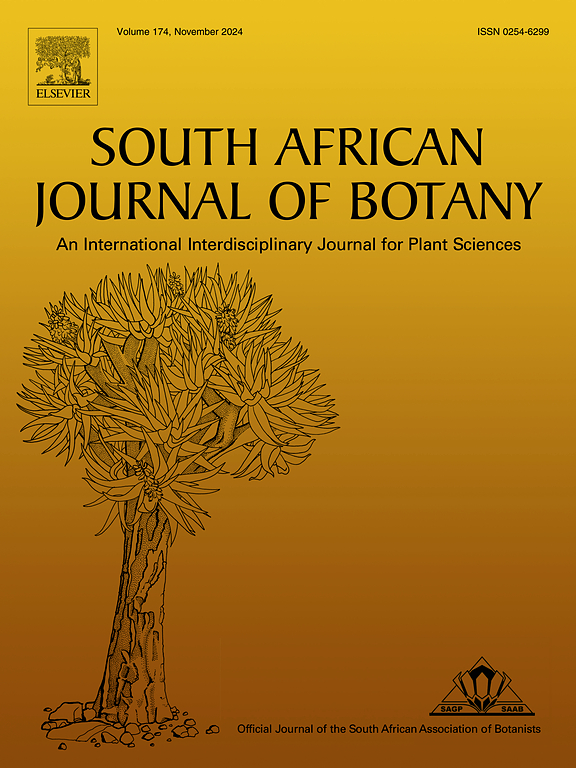A review of the world’s response to COVID-19 and the potential of medicinal plants for future pandemics
IF 2.7
3区 生物学
Q2 PLANT SCIENCES
引用次数: 0
Abstract
Coronavirus pandemics such as Spanish influenza, severe acute respiratory syndrome-coronavirus (SARS-CoV), middle east respiratory syndrome-coronavirus (MERS-CoV) and severe acute respiratory syndrome-coronavirus (SARS-CoV-2) have displayed high incidence and mortality rates prompting the need for repurposing of drugs, vaccine development and the investigation of medicinal plants. Research on previous coronaviruses has served as the foundation for COVID-19 (arising from SARS-CoV-2) research. Various medicinal plants such as Glycyrrhiza glabra, Ginkgo biloba, Curcuma longa and Artemisia annua have displayed favorable results against SARS-CoV-2. Medicinal plants as well as bioactive compounds derived from medicinal plants have been investigated in clinical trials to elucidate the effect on SARS-CoV-2. Several clinical trials evaluate the effect of the medicinal plant and bioactive compounds derived thereof on symptoms arising due to SARS-CoV-2 thus, the main aim of this review article is to highlight the gap in the investigation of the effect of medicinal plants and bioactive compounds on the specific mechanisms of COVID-19 in clinical trials. The review also highlights challenges pertaining to the standardization and quality control of medicinal plants as well as bioactive compounds derived from medicinal plants which may impede the feasibility of using medicinal plants in the clinical regimen for COVID-19 or future coronavirus pandemics.
回顾全球对COVID-19的应对措施以及药用植物应对未来大流行的潜力
西班牙流感、严重急性呼吸综合征-冠状病毒(SARS-CoV)、中东呼吸综合征-冠状病毒(MERS-CoV)和严重急性呼吸综合征-冠状病毒(SARS-CoV-2)等冠状病毒大流行的发病率和死亡率都很高,这促使人们需要重新利用药物、开发疫苗和研究药用植物。对以往冠状病毒的研究是COVID-19(由SARS-CoV-2引起)研究的基础。甘草、银杏、姜黄、黄花蒿等多种药用植物对SARS-CoV-2均有较好的疗效。临床试验研究了药用植物以及药用植物衍生的生物活性化合物,以阐明对SARS-CoV-2的作用。一些临床试验评价了药用植物及其衍生的生物活性化合物对SARS-CoV-2引起的症状的影响,因此,本文的主要目的是在临床试验中强调药用植物及其生物活性化合物对COVID-19具体机制研究的空白。该综述还强调了与药用植物以及药用植物衍生的生物活性化合物的标准化和质量控制有关的挑战,这些挑战可能会阻碍在COVID-19或未来冠状病毒大流行的临床方案中使用药用植物的可行性。
本文章由计算机程序翻译,如有差异,请以英文原文为准。
求助全文
约1分钟内获得全文
求助全文
来源期刊

South African Journal of Botany
生物-植物科学
CiteScore
5.20
自引率
9.70%
发文量
709
审稿时长
61 days
期刊介绍:
The South African Journal of Botany publishes original papers that deal with the classification, biodiversity, morphology, physiology, molecular biology, ecology, biotechnology, ethnobotany and other botanically related aspects of species that are of importance to southern Africa. Manuscripts dealing with significant new findings on other species of the world and general botanical principles will also be considered and are encouraged.
 求助内容:
求助内容: 应助结果提醒方式:
应助结果提醒方式:


